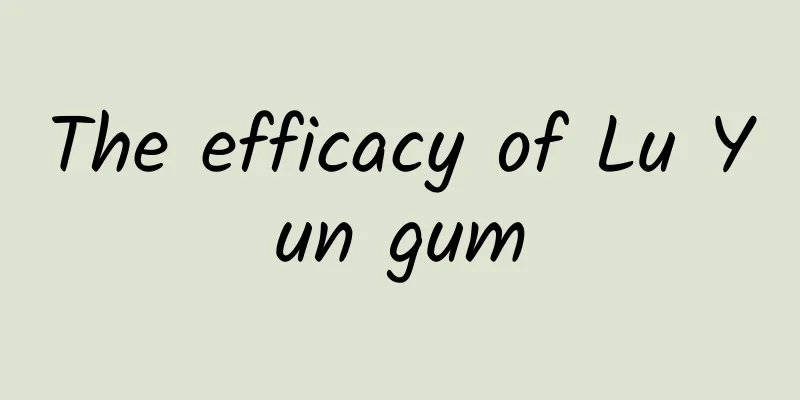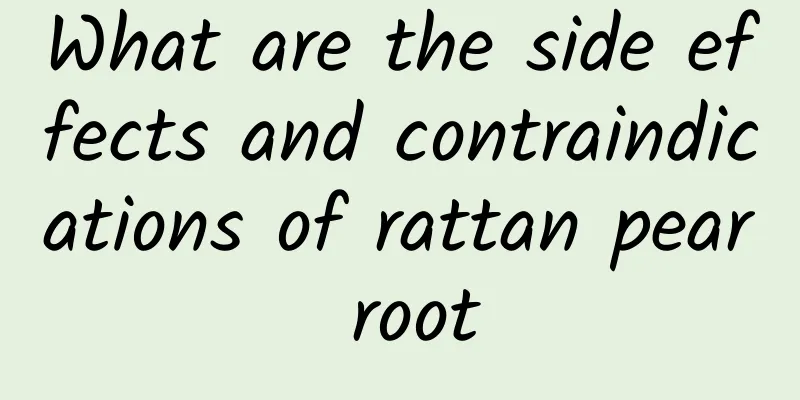The efficacy and function of rice ball root

|
Modern medical research believes that rice ball root contains many nutrients that are beneficial to the human body. As a traditional Chinese medicine, its efficacy and function have been widely recognized. Let's take a look at its specific situation. [Other names] Musk underground, Mountain musk (Guangxi Medicinal Plant List), Earth-penetrating beads, Earth-drilling wind, Three hundred taels of silver (Guangzhou Army's Handbook of Commonly Used Chinese Herbal Medicines). [Source] It is the root bark or root of the Magnoliaceae plant Lengfantuan . Available all year round. [Habitat distribution] Produced in Guangxi and Guangdong. [Properties] The dried root bark is in the shape of strips or semi-rolls, with varying lengths and sizes. The surface is slightly rough, brittle, brown in color, with many longitudinal wrinkles and transverse cracks. The inner surface is reddish brown. It is hard and easy to break, with a rough cross section and is fibrous. Slightly scented. [Properties and flavors] Guangzhou Army's "Handbook of Commonly Used Chinese Herbal Medicines": "pungent, slightly bitter, warm." 【Functions and indications】Promote qi circulation, activate blood circulation, disperse blood stasis and relieve pain. Treat acute gastroenteritis, chronic gastritis, gastric and duodenal ulcers, rheumatic bone pain, dysmenorrhea, postpartum blood stasis, bruises, and bleeding from knife wounds. [Usage and Dosage] For oral use: decocted in water, 0.5-1 liang; or soaked in wine. For external use: grind into powder and sprinkle. [Additional prescription] ① Treat dysmenorrhea: 1 liang of Windtail Grass, 5 qian of Rice Ball Root, 5 qian of Panzhunan Schisandrae Chinensis, 1 qian of Linderae Root. Take it in decoction, one dose per day. (Jiangxi "Handbook of Herbs") [Clinical Application] For pain relief: Take black tiger root and schizonepeta tenuifolia (Aquifoliaceae) and make an injection. Each 2 ml is equivalent to 3.5 g of black tiger root and 5 mg of chloroform extract (dry product) of schizonepeta tenuifolia. Inject into muscle or acupuncture points, 2-4 ml each time. It was used in 129 cases of biliary ascariasis, gastrointestinal colic, postoperative intestinal adhesions, ulcer pain attacks, adnexitis, dysmenorrhea, rheumatoid arthritis, sciatica, renal colic, etc., and 93 cases were significantly effective, with the effect appearing within 15 minutes after medication, and the pain disappeared within 1-2 hours; 25 cases were relieved, with the pain relieved 30 minutes after medication; 11 cases were ineffective. 【Excerpt】 《*Dictionary》 The above is an introduction to the effects and functions of rice ball roots. If you want to eat rice ball roots, it is best to consult a Chinese medicine doctor. I hope this helps you all. |
<<: The efficacy and function of Euonymus thunbergii
>>: The efficacy and function of porcupine quills
Recommend
What are the effects and functions of Humulus?
The main function of Humulus is to clear away hea...
Resembling the Big Dipper! This is the most flaming volcano in the Yitong volcano group!
It turns out that this is the most fiery volcano ...
What are the effects and functions of lotus seed heart soaked in water
We are reluctant to eat lotus seed heart. After b...
The efficacy and function of iris flower
Do you know Iris? It is a common Chinese medicina...
Side effects of processed Polygonum multiflorum
I believe everyone is very familiar with Polygonu...
"I love the ocean, and I love you too!" If scientists become romantic, you will have nothing to do with them
From "One Desk, Two Academicians" Yuan ...
I'm awake, but I can't move my body? The reason is...
© Wellcome Collection Leviathan Press: Sleep para...
Many countries have recently reported high incidence and death cases. The Chinese Embassy reminds you! Beijing CDC: Be alert——
The Mid-Autumn Festival and National Day holidays...
What are the side effects of ginseng?
Ginseng is a traditional Chinese medicine with ex...
The efficacy and function of snakehead asarum
The Chinese medicine snakehead asarum is already ...
The efficacy and function of Guoshan Xiaogen
Guoshanxiaogen is a traditional Chinese medicine....
How many layers does the sky have?
Please turn your phone over Today’s “journey to h...
Danger! A woman was almost paralyzed after being exposed to this "stuff" for 3 months. Don't touch it...
Expert of this article: Pan Kunming, Master of Ph...
Do you think that stomach pain will go away if you just endure it? Be careful! These types of stomach pain are particularly dangerous...
Expert of this article: Zhao Weitong, attending p...
What are the "black and white holes" on the road? You can't just hide from them!
Tunnel entrance and exit sections Why do accident...





![The efficacy and function of Qianjinzi [picture]](/upload/images/67ca1cc2cc6f6.webp)



